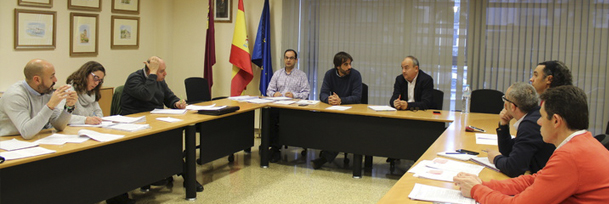
09 de March de 2018
Dinamización rural
The Murcia Department of Water, Agriculture, Livestock, and Fisheries will carry out more than 300 training activities in 2018 to train approximately 5,000 professionals in the agricultural, food, and forestry sectors in the region's various municipalities, with a budget of €750,000.
March 15, 2018
The Director General of Agriculture, Livestock, Fisheries, and Aquaculture, Francisco González Zapater, recently met with representatives of professional agricultural organizations and cooperative federations, following the publication of the Order calling for grants for knowledge transfer, information, and skills acquisition in the agricultural, food, and forestry sectors.
The meeting addressed, among other aspects, the application and processing of the various training programs that will be offered this year through the aforementioned call, and a review of the general and specific requirements for the main training activities was conducted.
The Regional Ministry currently has a catalog of 75 courses in different subject areas. These training activities, part of the 2014-2020 Rural Development Program, will be funded by the European Agricultural Fund for Rural Development (EAFRD), the Ministry of Agriculture, Fisheries, Food and Environment, and the Regional Ministry.
Last year, the courses on organic farming, professional user of phytosanitary products, safe tractor handling, and fruit and vegetable handling were among the highlights. A total of 4,100 students participated. The Ministry also issued 3,200 phytosanitary product professional user cards (2,500 at the basic level and 700 at the advanced level).
Last year, 1,641 young farmers and 729 women participated in training programs funded by the Regional Ministry and organized by professional agricultural organizations and cooperative federations.
This year, as a new development, new subjects are being introduced related to the sustainable use of fertilizers, nitrate pollution, climate change, bioeconomy, and the circular economy. These are the new pillars of the Common Agricultural Policy, with the aim of reducing the impact of this activity on the environment.









